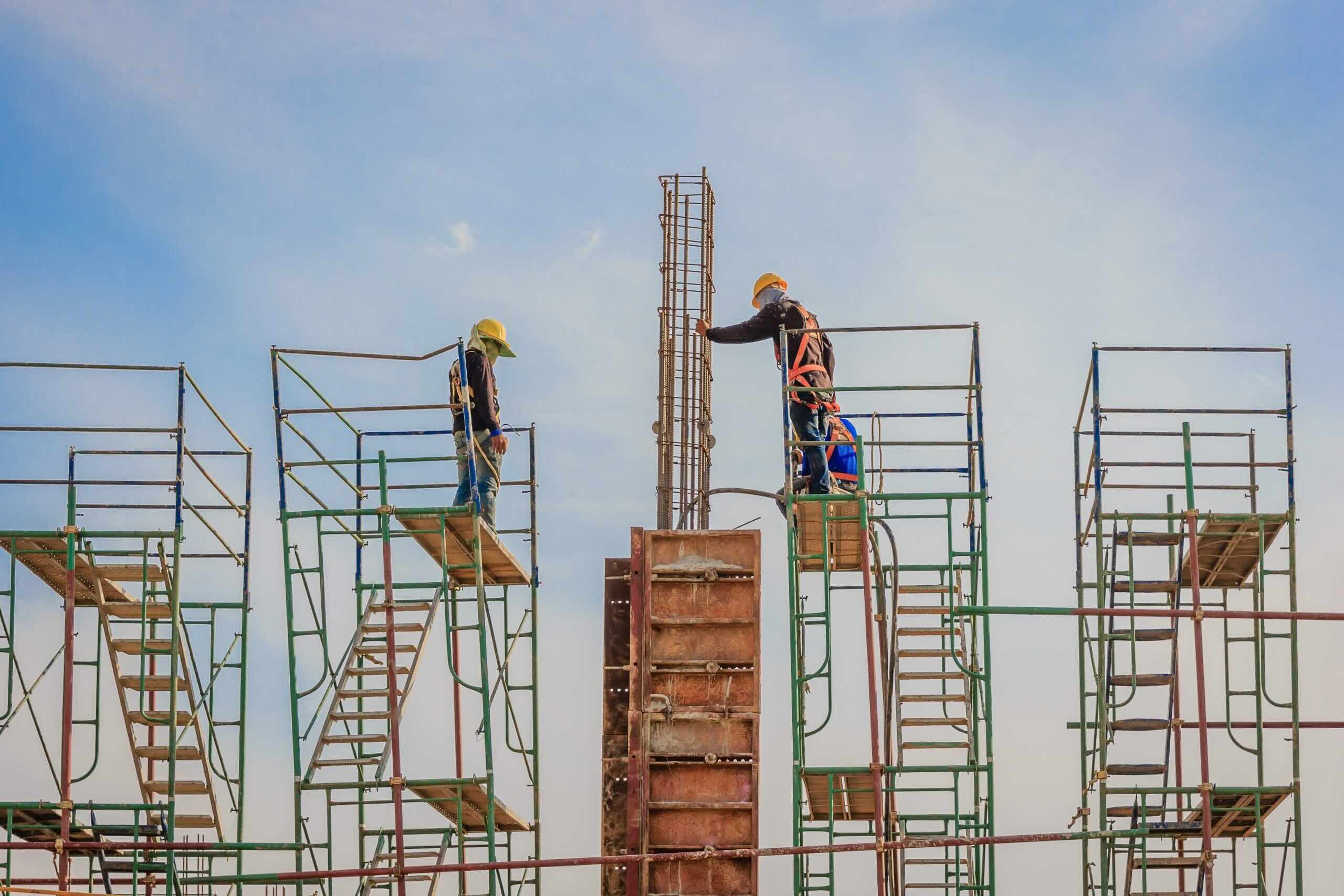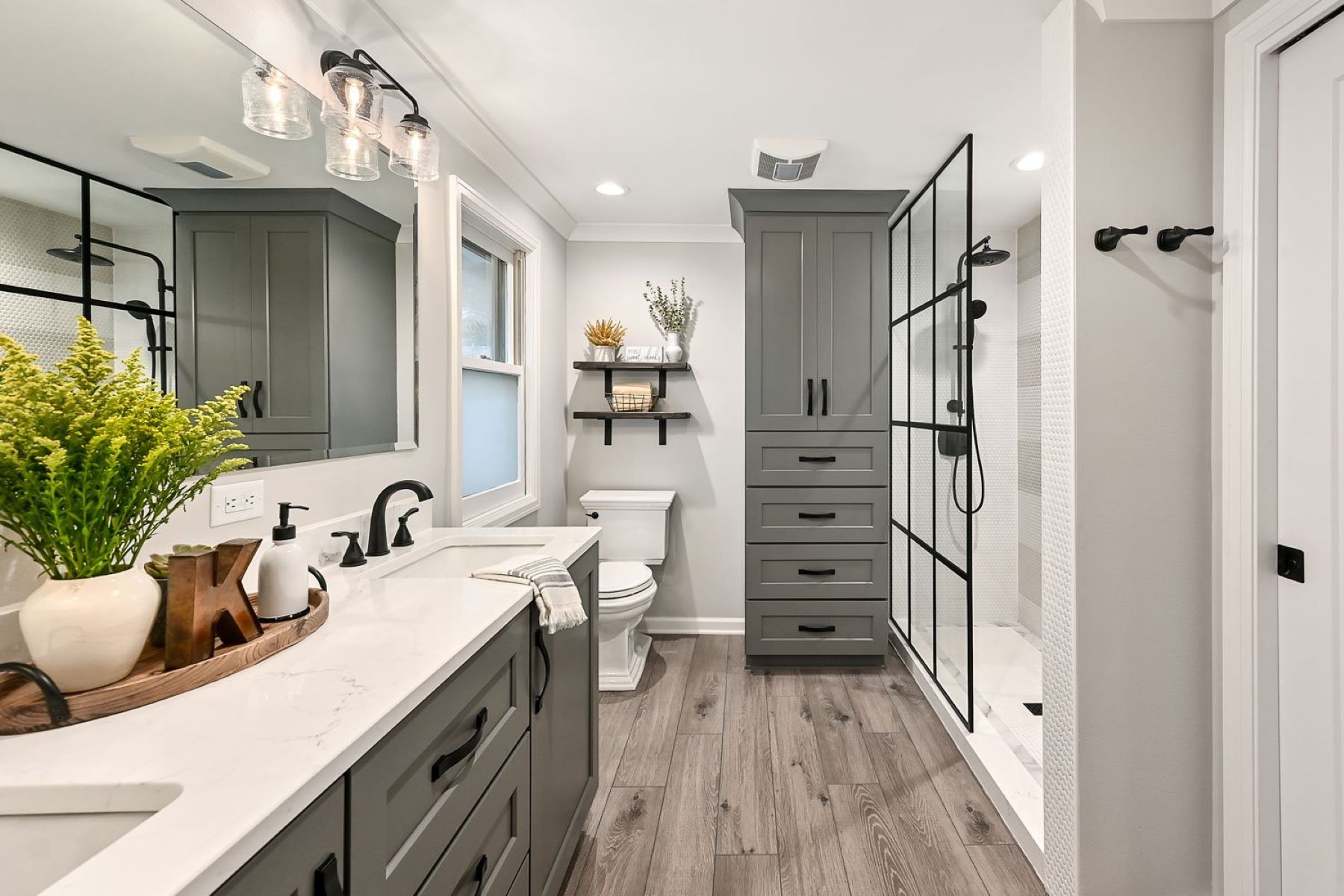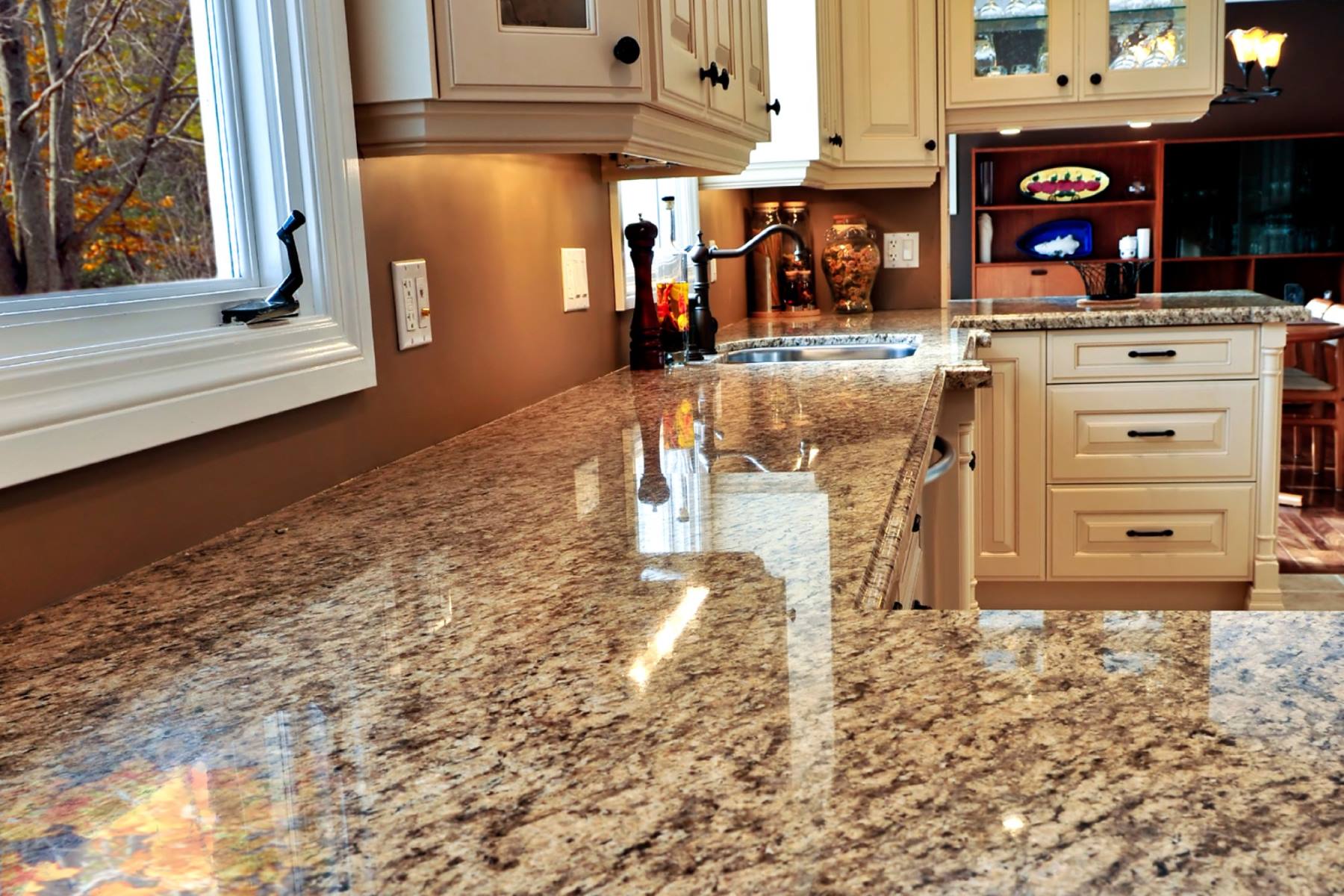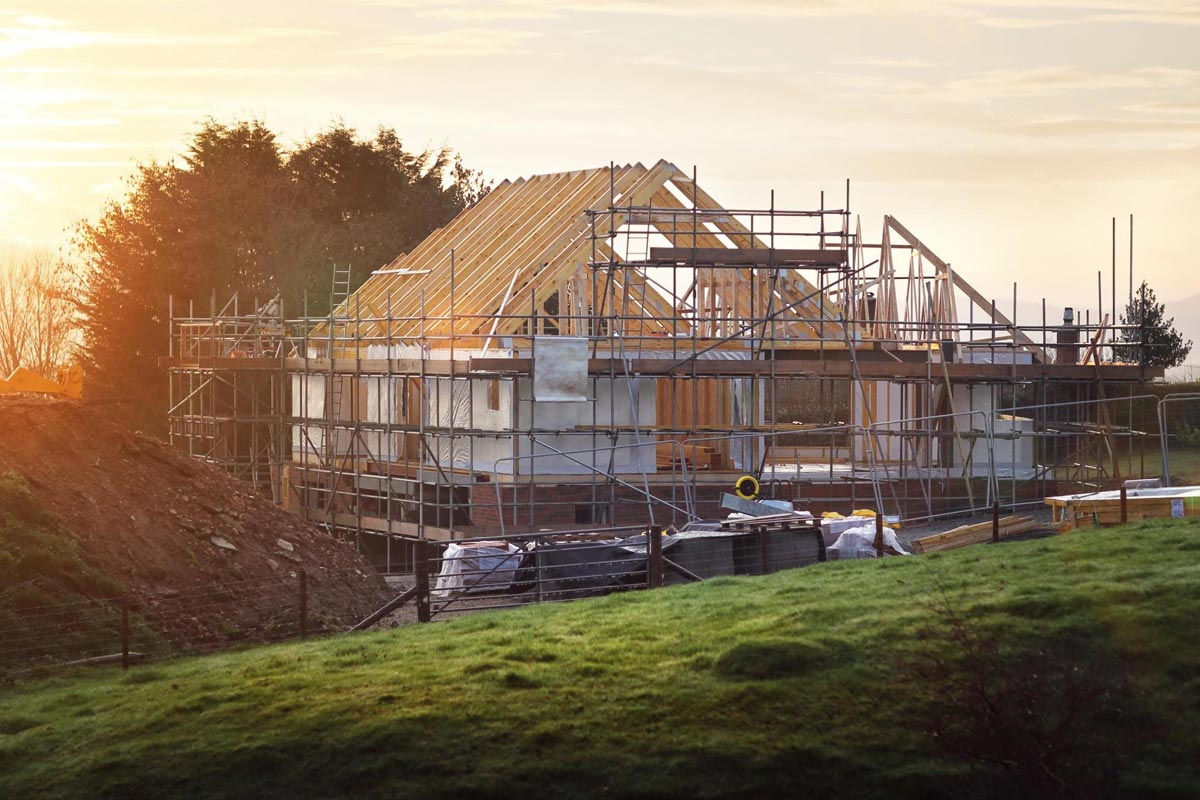Home>Renovation & DIY>Home Renovation Guides>Most Important Things To Know When Remodelling A House


Home Renovation Guides
Most Important Things To Know When Remodelling A House
Modified: January 8, 2024
Looking for home renovation guides? Learn the most important things to know when remodeling a house to ensure a successful and stress-free renovation project. Expert tips and advice for a smooth home renovation process.
(Many of the links in this article redirect to a specific reviewed product. Your purchase of these products through affiliate links helps to generate commission for Storables.com, at no extra cost. Learn more)
Setting a Budget
When embarking on a house remodeling project, setting a budget is the pivotal first step. Your budget will determine the scope of the project and guide your decision-making process throughout the renovation. Here are the most important things to consider when setting a budget for your home remodeling:
- Evaluate your finances: Before diving into any renovation project, it’s crucial to assess your financial situation. Determine how much you can comfortably allocate to the remodel without compromising your financial stability. Consider factors such as existing savings, potential loans, and any unexpected costs that may arise during the renovation process.
- Research and prioritize: Research the average costs of similar remodeling projects in your area. This will provide a realistic understanding of what to expect in terms of expenses. Additionally, prioritize the areas of your home that require immediate attention. This will help you allocate your budget effectively, focusing on the most crucial aspects of the remodel.
- Contingency fund: It’s essential to set aside a contingency fund for unforeseen expenses. Generally, allocating 10-20% of your total budget for unexpected costs is a prudent approach. This buffer will provide a safety net in case of unexpected structural issues, material price increases, or other unanticipated expenses.
- Consult with professionals: Seeking advice from experienced contractors or renovation experts can offer valuable insights into the potential costs associated with your remodeling project. Their expertise can help you make informed decisions and avoid underestimating the budget required for the renovation.
By meticulously setting a budget and accounting for potential variables, you can embark on your home remodeling project with confidence, knowing that your financial plan is well-structured and prepared for any unforeseen circumstances.
Key Takeaways:
- Setting a Budget is Crucial
Before remodeling, evaluate finances, research costs, set aside a contingency fund, and consult with professionals to ensure a well-structured budget for the project. - Preserve Your Home’s Character
Maintain the historical charm by preserving architectural elements, using authentic materials, and seeking professional expertise during the remodeling process.
Understanding Your Needs and Wants
Before diving into a home remodeling project, it’s crucial to gain a comprehensive understanding of your needs and wants. This step is pivotal in ensuring that the renovation aligns with your vision and practical requirements. Here are the essential aspects to consider when evaluating your needs and wants:
- Functional requirements: Assess the functionality of the space you intend to remodel. Consider the daily activities that take place in the area and how the renovation can optimize its practicality. For example, if you’re remodeling a kitchen, think about the layout, storage needs, and any specific appliances or features essential for your culinary endeavors.
- Aesthetic preferences: Your aesthetic preferences play a significant role in the remodeling process. Consider the design elements, color schemes, and overall ambiance that resonate with your personal style and vision for the space. Whether it’s a cozy, rustic charm or a modern, minimalist aesthetic, understanding your aesthetic desires will guide the design and material selection process.
- Future considerations: Anticipate your future needs when planning the remodel. If you’re planning to expand your family or accommodate aging in place, factor these considerations into the renovation. Creating a space that can adapt to future changes will enhance the longevity and functionality of the remodel.
- Budget alignment: Ensure that your needs and wants align with your budget. Prioritize the non-negotiable aspects of the remodel while remaining mindful of cost-effective alternatives for elements that are more flexible. This approach will help you achieve a balance between your desires and financial constraints.
By thoroughly understanding your needs and wants, you can approach the remodeling project with clarity and purpose. This foundational understanding will serve as a guiding framework, ensuring that the renovation reflects your practical requirements, aesthetic preferences, and long-term vision for your home.
Hiring the Right Professionals
When undertaking a home remodeling project, the expertise and proficiency of the professionals you engage are paramount to the success of the endeavor. Here are the crucial considerations for hiring the right professionals for your renovation:
- Research and referrals: Begin by conducting thorough research and seeking referrals for reputable professionals in the home renovation industry. Utilize online platforms, review websites, and seek recommendations from friends, family, or colleagues who have had positive experiences with remodeling professionals.
- Verify credentials and experience: Prioritize professionals with relevant credentials, licenses, and extensive experience in the specific type of remodeling project you are undertaking. A proven track record and a portfolio of successful projects are indicative of a contractor’s capability and reliability.
- Transparent communication: Effective communication is vital when engaging with remodeling professionals. Ensure that the professionals you hire are transparent and responsive in their communication. They should be receptive to your ideas, provide clear project timelines, and address any concerns or inquiries you may have.
- Contract and documentation: Before commencing the project, ensure that all terms, expectations, and project details are documented in a comprehensive contract. This contract should include the scope of work, payment schedule, project timeline, and any specific agreements or warranties. Clarity in documentation mitigates potential misunderstandings and ensures a smooth working relationship.
- Quality over cost: While it’s important to adhere to your budget, prioritize quality over cost when selecting professionals for your remodeling project. Opting for the lowest bid may lead to subpar workmanship and potential complications down the line. Invest in professionals who prioritize quality, reliability, and adherence to industry standards.
By diligently vetting and selecting the right professionals for your home remodeling project, you can instill confidence in the renovation process, knowing that your project is in capable hands. The expertise and professionalism of the professionals you engage will significantly influence the outcome of your remodel, ensuring a successful and satisfying transformation of your home.
Obtaining Necessary Permits
Before embarking on a home remodeling project, it’s essential to understand the significance of obtaining the necessary permits. Compliance with local building codes and regulations is imperative to ensure the safety, structural integrity, and legal adherence of the renovation. Here are the crucial aspects to consider when obtaining permits for your remodeling project:
- Research local requirements: Familiarize yourself with the specific permit requirements and building codes enforced by your local municipality or governing authority. Each area may have distinct regulations pertaining to remodeling projects, and understanding these requirements is fundamental to the legality of your renovation.
- Engage with professionals: Seek guidance from your contractor or architect regarding the permit acquisition process. Experienced professionals are well-versed in navigating the permit application procedures and can provide invaluable assistance in ensuring that all necessary permits are secured before commencing the remodel.
- Comprehensive permit coverage: Ensure that all aspects of your remodeling project, including structural modifications, electrical work, plumbing alterations, and any other relevant changes, are encompassed within the permit applications. Comprehensive permit coverage mitigates the risk of encountering legal complications or project delays due to overlooked permit requirements.
- Timely permit acquisition: Initiate the permit application process well in advance of the planned start date for your remodeling project. Permit approval timelines can vary, and it’s crucial to factor in the potential duration for permit processing to avoid unnecessary delays in the commencement of the renovation.
- Adherence to regulations: Throughout the remodeling process, ensure strict adherence to the approved permit specifications and building codes. Any deviations from the permitted plans can result in legal ramifications and may compromise the safety and compliance of the remodel.
By diligently navigating the permit acquisition process and adhering to regulatory requirements, you can embark on your remodeling project with the assurance that your renovation complies with legal standards and prioritizes the safety and structural integrity of your home.
Choosing the Right Materials and Finishes
When undertaking a home remodeling project, the selection of materials and finishes significantly influences the aesthetic appeal, durability, and functionality of the renovated space. Here are the essential considerations for choosing the right materials and finishes for your remodel:
- Quality and durability: Prioritize materials known for their durability and longevity. Opting for high-quality materials, such as hardwood flooring, sturdy countertops, and durable fixtures, ensures that your remodel withstands the test of time and minimizes the need for frequent replacements.
- Functionality and maintenance: Consider the practical aspects of the materials in relation to the specific area being remodeled. For instance, in a kitchen renovation, prioritize materials that are easy to clean, resistant to stains, and capable of enduring frequent use. Assess the maintenance requirements of the materials to ensure they align with your lifestyle and maintenance preferences.
- Aesthetic cohesion: Maintain a cohesive aesthetic throughout the home by selecting materials and finishes that complement the overall design theme. Whether you prefer a contemporary, industrial look or a classic, timeless ambiance, cohesive material selection enhances the visual harmony of the remodel.
- Sustainable and eco-friendly options: Consider environmentally sustainable materials and finishes that align with your commitment to eco-conscious living. Opting for energy-efficient appliances, recycled materials, or sustainable wood products contributes to a greener remodel and reduces the environmental impact of the renovation.
- Budget-conscious choices: Strive to strike a balance between quality and cost when selecting materials and finishes. Research cost-effective alternatives that offer durability and visual appeal without exceeding your budget. Prioritize investments in high-impact areas while exploring budget-friendly options for secondary elements.
By thoughtfully selecting materials and finishes that prioritize quality, functionality, and aesthetic cohesion, you can elevate the visual appeal and functionality of your home through a well-curated and enduring remodel.
When remodeling a house, always start with a clear budget and plan. Research and hire reputable contractors, and obtain all necessary permits before beginning any work.
Planning for Unexpected Costs
During a home remodeling project, unexpected costs can arise, potentially impacting your budget and the overall progress of the renovation. To mitigate the impact of unforeseen expenses, it’s essential to proactively plan for unexpected costs. Here are the key strategies for effectively managing and preparing for unexpected expenses during your remodel:
- Contingency budget allocation: Allocate a contingency fund within your budget to accommodate unforeseen expenses. Setting aside 10-20% of your total budget for unexpected costs provides a financial buffer to address unforeseen structural issues, material price fluctuations, or unanticipated project modifications.
- Thorough project assessment: Conduct a comprehensive evaluation of the existing structure and potential renovation scope to identify potential areas of concern. Engage with a professional inspector to assess the condition of the home and anticipate any underlying issues that may require additional attention and budget allocation.
- Transparent communication with professionals: Foster open communication with your contractor and renovation professionals to discuss the potential for unexpected costs. A transparent dialogue allows for proactive problem-solving and the early identification of any factors that may impact the budget, enabling informed decision-making and financial planning.
- Research and flexibility: Research the average costs associated with similar remodeling projects and remain flexible in your budget allocation. By understanding the potential range of expenses and remaining adaptable in your financial planning, you can better accommodate unforeseen costs without derailing the progress of the remodel.
- Prudent decision-making: Exercise prudence in decision-making throughout the remodel, considering the long-term implications of any changes or modifications. Prioritize essential elements of the renovation while carefully evaluating the necessity and impact of any additional features or alterations to manage costs effectively.
By proactively planning for unexpected costs and implementing strategic measures to mitigate their impact, you can navigate your home remodeling project with financial preparedness and confidence, ensuring that unforeseen expenses do not compromise the successful completion of the renovation.
Considering Energy Efficiency
Integrating energy-efficient features into your home remodeling project not only contributes to environmental sustainability but also enhances the long-term cost-effectiveness and comfort of your living space. When considering energy efficiency during your remodel, the following factors are crucial to maximize the eco-friendly and sustainable aspects of the renovation:
- Appliance and fixture upgrades: Consider replacing outdated appliances and fixtures with energy-efficient models. Energy Star-rated appliances, LED lighting, low-flow plumbing fixtures, and programmable thermostats are examples of upgrades that reduce energy consumption and lower utility costs while enhancing the functionality of your home.
- Insulation and sealing: Assess the insulation and sealing of your home to optimize energy efficiency. Upgrading insulation, sealing air leaks, and ensuring proper ventilation not only improves the comfort of your home but also reduces energy waste, leading to lower heating and cooling expenses.
- Renewable energy integration: Explore the integration of renewable energy solutions, such as solar panels or geothermal heating systems, into your remodeling plans. These sustainable energy sources can significantly reduce your reliance on traditional energy grids and contribute to a greener, more self-sufficient home environment.
- Passive design considerations: Incorporate passive design principles into the remodel to maximize natural lighting, ventilation, and thermal regulation. Strategic window placement, shading elements, and thermal mass considerations can optimize energy efficiency and create a more comfortable and sustainable living space.
- Lifecycle cost analysis: Conduct a lifecycle cost analysis to evaluate the long-term financial benefits of energy-efficient upgrades. While initial investments in energy-efficient features may be higher, the long-term savings in utility costs and the positive environmental impact make them a prudent and sustainable choice.
By prioritizing energy efficiency in your remodeling project, you can create a home that not only reflects your aesthetic preferences but also embodies a commitment to sustainable living and responsible energy consumption. The integration of energy-efficient features contributes to a comfortable, eco-friendly, and cost-effective living environment for years to come.
Maintaining the Character of the House
Preserving the unique character and charm of your home during a remodeling project is essential to honor its history and architectural identity. Whether your home boasts traditional craftsmanship, historical significance, or distinctive architectural features, maintaining its character while introducing modern amenities can create a harmonious blend of old-world charm and contemporary comfort. Here are the key considerations for preserving the character of your house during the remodel:
- Architectural preservation: Respect the original architectural elements and features of your home. Whether it’s ornate moldings, vintage hardware, or intricate woodwork, preserving these details maintains the historical integrity and character of the house, contributing to its timeless appeal.
- Material authenticity: When undertaking renovations, prioritize the use of authentic materials that align with the era and style of your home. Reclaimed wood, salvaged fixtures, and period-appropriate materials contribute to the authenticity and character of the remodel, seamlessly integrating modern updates with historical significance.
- Adaptive reuse: Explore adaptive reuse strategies to repurpose existing materials and architectural elements within the remodel. Incorporating salvaged doors, repurposed cabinetry, or reclaimed flooring not only adds character but also reduces environmental impact by diverting materials from landfills.
- Historical context: Research the historical context of your home and its architectural style to inform the remodeling decisions. Understanding the era-specific design elements and cultural influences allows for a thoughtful integration of modern amenities while respecting the historical narrative of the house.
- Professional expertise: Engage with professionals experienced in historical preservation and architectural restoration. Their expertise in navigating the delicate balance between preservation and modernization ensures that the character of your home remains intact throughout the renovation process.
By conscientiously preserving the character of your house during the remodeling process, you can honor its heritage and craftsmanship while creating a space that seamlessly blends the allure of the past with the comforts of the present, resulting in a timeless and captivating living environment.
Creating a Realistic Timeline
Establishing a realistic timeline for your home remodeling project is essential for efficient planning, coordination, and successful execution. A well-structured timeline not only ensures that the renovation progresses smoothly but also minimizes potential disruptions and delays. Here are the fundamental considerations for creating a realistic timeline for your remodel:
- Comprehensive project assessment: Begin by conducting a thorough assessment of the scope of work and the specific requirements of the remodeling project. This includes evaluating structural modifications, material procurement, and any potential external factors that may impact the timeline, such as seasonal considerations or permit acquisition timelines.
- Professional consultation: Engage with experienced contractors and renovation professionals to collaboratively establish a realistic timeline for the project. Their expertise in project management and construction sequencing enables the creation of a comprehensive and achievable schedule that factors in all essential stages of the remodel.
- Material and fixture procurement: Anticipate the lead times for procuring materials, fixtures, and custom elements required for the renovation. Coordinating the procurement schedule with the project timeline ensures that essential components are readily available when needed, minimizing potential delays due to material shortages.
- Flexibility and contingencies: Incorporate flexibility and contingencies within the timeline to accommodate unforeseen circumstances or adjustments during the remodeling process. Allotting buffer periods for unexpected delays or revisions to the project plan enhances the resilience of the timeline and mitigates the impact of unanticipated challenges.
- Sequential task scheduling: Sequencing the tasks and stages of the remodel in a logical and efficient manner is pivotal to optimizing the timeline. From demolition and structural work to installations and finishing touches, a well-structured sequence of tasks ensures a streamlined progression of the project.
By meticulously crafting a realistic timeline that encompasses all essential considerations and allows for adaptability, you can navigate your home remodeling project with confidence, ensuring that the renovation progresses efficiently and culminates in a successful transformation of your living space.
Communicating Effectively with Your Contractor
Establishing clear and effective communication with your contractor is paramount to the success of your home remodeling project. Open dialogue, mutual understanding, and transparent collaboration foster a cohesive working relationship and ensure that the renovation aligns with your vision and expectations. Here are the essential strategies for communicating effectively with your contractor throughout the remodeling process:
- Initial project briefing: Initiate the collaboration by providing a comprehensive project brief to your contractor. Clearly articulate your goals, preferences, and non-negotiable elements of the remodel, allowing the contractor to gain a thorough understanding of your vision for the project.
- Active listening and feedback: Foster a two-way communication channel by actively listening to the insights and recommendations of your contractor. Engage in constructive dialogue and provide feedback on proposed plans, ensuring that both parties have a platform to express their perspectives and contribute to informed decision-making.
- Regular progress updates: Maintain regular communication to receive updates on the progress of the renovation. Scheduled meetings or digital check-ins provide opportunities to address any concerns, track the project timeline, and celebrate milestones achieved throughout the remodeling journey.
- Clarity in expectations: Clearly outline your expectations regarding project timelines, budget constraints, and quality standards. Establishing clear expectations from the outset minimizes potential misunderstandings and aligns the contractor’s deliverables with your envisioned outcomes.
- Timely issue resolution: Promptly address any concerns or issues that may arise during the remodeling process. Effective communication allows for swift resolution of challenges, preventing minor issues from escalating into significant disruptions to the project timeline or quality of work.
- Documentation and agreements: Ensure that all agreements, changes to the project scope, and important communications are documented in writing. This includes signed contracts, change orders, and any project variations, providing a comprehensive record of the decisions made throughout the remodel.
By fostering a communicative and collaborative partnership with your contractor, you can navigate the remodeling process with clarity, trust, and transparency, ensuring that your vision for the renovation is realized with precision and excellence.
Frequently Asked Questions about Most Important Things To Know When Remodelling A House
Was this page helpful?
At Storables.com, we guarantee accurate and reliable information. Our content, validated by Expert Board Contributors, is crafted following stringent Editorial Policies. We're committed to providing you with well-researched, expert-backed insights for all your informational needs.














0 thoughts on “Most Important Things To Know When Remodelling A House”